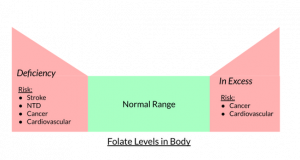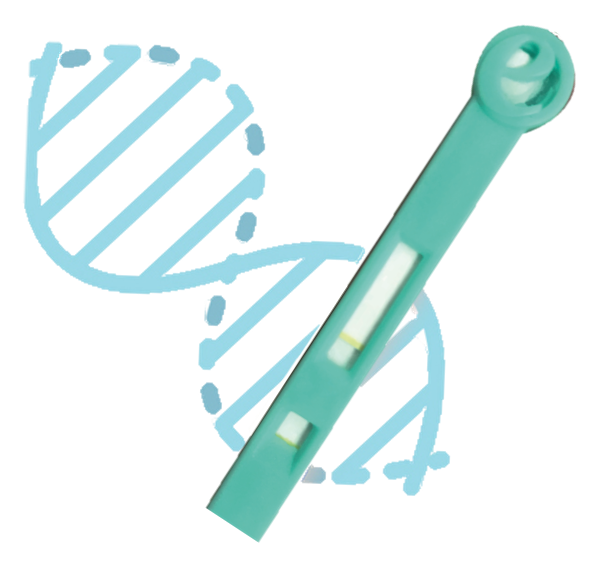Have you ever wondered why we need vitamins? The answer is simple : For our survival. A lot of vitamins and minerals are essential for a lot of processes in our bodies. But sadly, our bodies are not capable of making their own stock of vitamins. But worry not, for a lot of vitamins and minerals are found easily in various food and beverages we consume daily.
One of them is Vitamin B9, or sometimes known as folate. Or perhaps you’re more familiar with the term folic acid, as it was often marketed in that form. This substance takes part in helping our bodies construct DNA and healthy red blood cells, among other things.
Now you might think, “Why can’t I find folate in the supplements sold at the stores? Why do they all say folic acid instead? Are they the same?” Well, yes and no. Folic acid is the name for synthetically made folate, whereas folate refers to the naturally found substance in food. Therefore, all the vitamin supplements and pills will only contain folic acid. Folic acid and folate are essentially different molecules. But they will have the same functions and will be converted into the same substance inside our bodies. So if your diet doesn’t contain enough folate to support your body, don’t be afraid to consume folic acid supplements to boost your folate levels!
“But what if my diet is already rich in folate and I still consume folic acid supplements?” Well, if that happens, don’t worry too much! Over consumption of folate won’t affect us that much. Yes, if the folate concentration in your body is literally off the charts, you might get some long term side effects, as excessive amounts of folate have been recently associated with increased cancer risks. But if it’s within the acceptable range, it’s all gonna be fine.
So what is the acceptable range for folate? Doctors have stated that normal intake of folate should be around 400 micrograms/day. But during pregnancy, this number increased up to 600 micrograms/day! This is mainly because of the essential part folate plays in the development of the fetus. Folate deficiency during pregnancy can lead to several birth defects, mainly Neural Tube Defects.
Aside from birth defects, folate deficiency can lead to a whole lot of other problems. From simple fatigue, muscle weakness, and headaches to anemia and even stroke! Folate deficiency is prevalent in almost every country around the world. In China, around one in seven women in reproductive age do not meet the minimum requirement of folate consumption. This number is significantly higher in low income countries, such as Pakistan and Indonesia.
But what’s the relation between folate and stroke? How can not consuming enough folate lead to stroke? Well, one of the functions of folate is to break down a substance called homocysteine, which can damage arterial walls. So when these homocysteines exist in our blood vessels, folate helps to reduce the number to a safe level and therefore reduce the damage dealt to the vessels. If left alone, these damages could lead to an increased risk of stroke. Because of that, if you consume sufficient folate, you can reduce the risk of stroke by as much as 25%!
But don’t worry! You can obtain folate easily as it is contained in a lot of different food products. The most folate-rich foods are leafy green vegetables, citrus fruits, liver, seafood, eggs, beans and peas, peanuts, and asparagus. You can also boost your folate levels by consuming folic acid supplements. Remember, the key is to keep your folate level in the 400 micrograms range!

Because of its importance, the United States FDA implemented mandatory folic acid fortification on cereal grain products (e.g. cereal, bread, pastas, rice & flour) in 1998.
CDC 2018 studies showed that there was a 41% risk reduction in NTD subsequent to this mandate.

